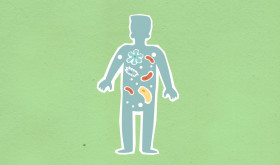
Colorectal cancer, a significant health concern worldwide, has complex etiologies involving lifestyle, environmental factors, and crucially, genetic predispositions. Understanding these genetic factors is vital for early detection, prevention, and management of the disease. This comprehensive guide delves into the genetic underpinnings of colorectal cancer, elucidating how familial history and genetic mutations contribute to the risk.
Genetic predispositions to colorectal cancer are not uncommon, with a notable percentage of cases attributed to inherited genetic mutations. The most well-known of these are familial adenomatous polyposis (FAP) and hereditary non-polyposis colorectal cancer (HNPCC), also known as Lynch syndrome. These conditions are characterized by specific genetic mutations passed down through families, significantly increasing the risk of developing colorectal cancer.
Familial Adenomatous Polyposis and Lynch Syndrome
FAP is caused by mutations in the APC gene, leading to the early onset of hundreds to thousands of polyps in the colon and rectum during the teenage years or early adulthood. If untreated, these polyps almost invariably develop into cancer. On the other hand, Lynch syndrome, caused by mutations in mismatch repair genes such as MLH1, MSH2, MSH6, and PMS2, increases the risk not only for colorectal cancer but also for other types of cancer, including endometrial and ovarian cancer.
Genetic Factors Beyond High-Risk Syndromes
However, not all genetic predispositions to colorectal cancer are linked to these high-risk syndromes. A more common scenario is a family history of colorectal cancer that does not fit the criteria for FAP or Lynch syndrome. In such cases, the risk is often due to a combination of genetic factors and lifestyle or environmental influences.
Genomic Advances in Colorectal Cancer Risk Assessment
Recent advancements in genomic research have identified numerous other genes associated with an increased risk of colorectal cancer. These include the BARD1, BRCA1, BRCA2, and RAD51D genes, traditionally linked to breast and ovarian cancer risk. Furthermore, certain genetic markers, identified through genome-wide association studies (GWAS), have been associated with a modestly increased risk of colorectal cancer. These markers can be numerous and each contributes a small amount to the overall risk.
Implications of Genetic Testing for Colorectal Cancer
The understanding of these genetic predispositions is not just academic; it has practical implications for screening and prevention strategies. For individuals with a known family history of colorectal cancer or identified genetic mutations, enhanced surveillance is recommended. This may include starting colorectal cancer screenings at an earlier age, undergoing screenings more frequently, and using more comprehensive methods like genetic counselling and testing.
Managing Risk with Tailored Surveillance Strategies
Genetic testing for colorectal cancer predisposition has become increasingly accessible and is a critical tool in managing the risk. If a harmful mutation is identified, individuals and their healthcare providers can create a tailored surveillance and prevention strategy. This might include regular colonoscopies, lifestyle modifications, and, in some high-risk cases, preventive surgery.
The Role of Genetic Counselling in Familial Cancer Risk
In families with a history of colorectal cancer, understanding the genetic predispositions can also inform the risk for family members. Genetic counselling is an integral part of this process, providing information about the likelihood of inheriting or passing on these genetic mutations and discussing the implications for cancer risk and screening recommendations.
In conclusion, understanding genetic predispositions to colorectal cancer is a key component in the fight against this disease. It involves comprehending the complex interplay of inherited mutations, family history, and other risk factors. As genetic testing and genomic research continue to evolve, they offer hope for more personalised and effective approaches to colorectal cancer prevention and treatment.















